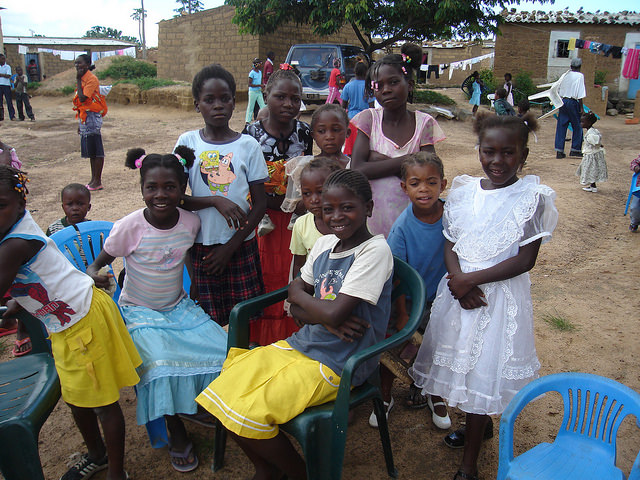Government Calls for Women’s Empowerment in Angola
 As a country that experienced war until 2002, women’s empowerment in Angola was a neglected subject until recently. In 2009, the Angolan Executive began to implement the goals of the Beijing Platform for Action, which promotes gender equality and basic human rights.
As a country that experienced war until 2002, women’s empowerment in Angola was a neglected subject until recently. In 2009, the Angolan Executive began to implement the goals of the Beijing Platform for Action, which promotes gender equality and basic human rights.
Laws and Programs
In response to the Beijing Platform for Action and a desire to bridge the gender gap, Angola enforced several new laws. The Labour Code, the Family Code, the HIV/AIDS laws and the Nationality Law were all designed specifically to end the disparities in employment, land ownership, health and basic human rights between genders.
Following the laws, the National Development Plan for 2013-2017 was implemented in Angola to ensure equal opportunities were extended to men and women economically, socially, culturally and politically.
The government of Angola designed the Programme of Support to Gender and Women Promotion, Support to Victims of Violence, Valorization of the Family and Community Development and Rural Women Promotion. All programs are meant to target specific areas that act as barriers to women’s empowerment in Angola.
Literacy
Furthermore, beginning in 2013, USAID aided Angola through a project called Basic Education – Triumphant Women and Youth Project, which teaches literacy and strives to eliminate all illiteracy in Angola by 2025. USAID designated $1.2 million to the project, promoting Angolan’s access to the project’s classes.
In 2015 alone, around 500 Angolan women earned their two-year literacy diplomas. The Women and Youth Project has provided 5,600 women with adult courses, while also increasing the enrollment rates of students in primary schools. The project also supplies students with textbooks and other school materials.
Through literacy and education, women become much closer to ending gendered discrimination.
Ensuring Jobs
Since 2015, Africa has sought to include more females in the workplace. Through a project called Power Africa, female participation in the power and energy sectors has increased.
Women gain skills in business, electrical engineering, communication or salesman services. Power Africa is providing women with networking opportunities and a chance to rise to higher positions. Ending gender discrimination in the workplace throughout all of Africa is key to Angolan economic success.
Combining the equality efforts of the government, organizations like USAID and Africa’s overall influence, there has been a kickstart to the country’s goals of achieving gender equality and women’s empowerment in Angola.
– Brianna White
Photo: Flickr
